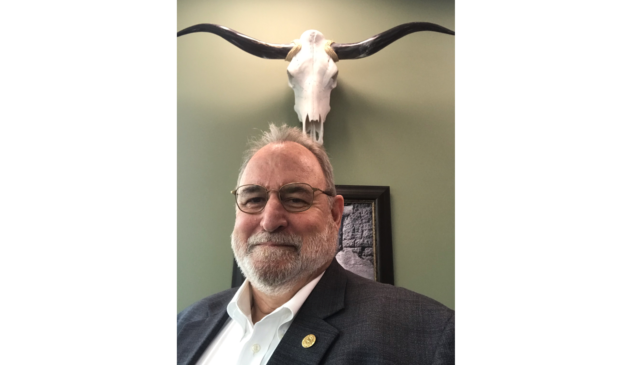Exit Eckstein: Travis County’s retiring lobbyist reflects on his battles at the Legislature
Monday, November 18, 2019 by
Jack Craver After 11 years, Deece Eckstein is calling it quits as Travis County’s top lobbyist. He recently told members of the Commissioners Court that he will retire from his position as the intergovernmental relations officer at the end of the year.
Eckstein, 65, said he envisions eventually returning to some type of work in the advocacy world, but that he wants to take some time off to deal with health issues he needs to “pay better attention to.” He also hopes to do some traveling and spend time in West Texas.
Hired in 2008 to represent the interests of the county in its dealings with other governmental entities, Eckstein was the county’s first full-time lobbyist. One of his most important functions in that role was to minimize the harm done to county government by an often hostile state Legislature.
In 2019, however, there didn’t appear to be much that Eckstein or anybody else could do to stop GOP leaders from pushing through a bill that sharply reduced the taxing power of local governments.
Former House Speaker Dennis Bonnen neatly summed up the challenge that Eckstein and other local government advocates faced when he said in a secretly recorded meeting last June, “Any mayor, county judge that was dumbass enough to come meet with me, I told them with great clarity, my goal is for this to be the worst session in the history of the Legislature for cities and counties.”
GOP leaders also sought to enact a law that would have outlawed Eckstein’s job by barring local governments from spending taxpayer funds to lobby the Legislature. The bill ultimately failed to advance.
Eckstein, who dealt regularly with the Legislature as an aide to Gov. Ann Richards in the early ’90s, recalls a culture at the Capitol that was driven far less by partisanship and ideology. Democrats controlled both houses of the Legislature, but most of them were “not wildly progressive,” he said. There were still plenty of conservative Democrats, some of whom would later switch to the GOP. Party leaders could not command the votes of their members like they can today.
“The tenor of the Legislature was always conservative,” Eckstein said, but “most legislators were pragmatic.”
There was also much greater deference to local governments. “I think generally there was this recognition among legislators that their local government officials were peers. I always felt there was this attitude of mutual respect towards them as officeholders.”
The high-profile battles between the state Legislature and Travis County did not prevent Eckstein from working effectively with Republicans on other issues, especially lower-profile matters that were nevertheless of great importance to county government.
“Most of what we did in our office is what I would call small-ball stuff,” he said. “It tended to get overshadowed in everyone’s minds by stuff like the revenue caps. Most of what we were doing was helping local government work more efficiently.”
There were still members of both parties eager to help on that front.
This past session, for instance, Eckstein worked to get a new state civil court approved for Travis County. The session before that, he worked with former Rep. Paul Workman, R-Austin, an arch-conservative who regularly attacked the city’s “socialist policies,” to set up the Southwestern Travis County Groundwater Conservation District.
“Paul Workman in the last session was one of our go-to guys,” recalled Eckstein. “We worked very well with his office.”
It helped that the Commissioners Court did not task him with lobbying on hot-button social issues that did not directly impact county government, he said.
For instance: “I wasn’t getting into the middle of abortion or constitutional carry.”
Eckstein’s proudest accomplishment is not any particular legislative victory, but rather the process he helped set up to track legislation that might affect the county. Using a software program, Telicon, his office tracked over 2,500 bills this past session.
Although there were never more than two people working in his own office – himself and deputy Julie Wheeler – he also set up a group of staff from various county departments who met regularly to discuss legislation relating to their particular areas of expertise, from groundwater to transportation.
“We figured out how to get the smartest people in the county looking at the bills that were unique to their subject area and give us good advice about those bills,” he said. “That made my job easier and made us more effective.”
The Austin Monitor’s work is made possible by donations from the community. Though our reporting covers donors from time to time, we are careful to keep business and editorial efforts separate while maintaining transparency. A complete list of donors is available here, and our code of ethics is explained here.
You're a community leader
And we’re honored you look to us for serious, in-depth news. You know a strong community needs local and dedicated watchdog reporting. We’re here for you and that won’t change. Now will you take the powerful next step and support our nonprofit news organization?






